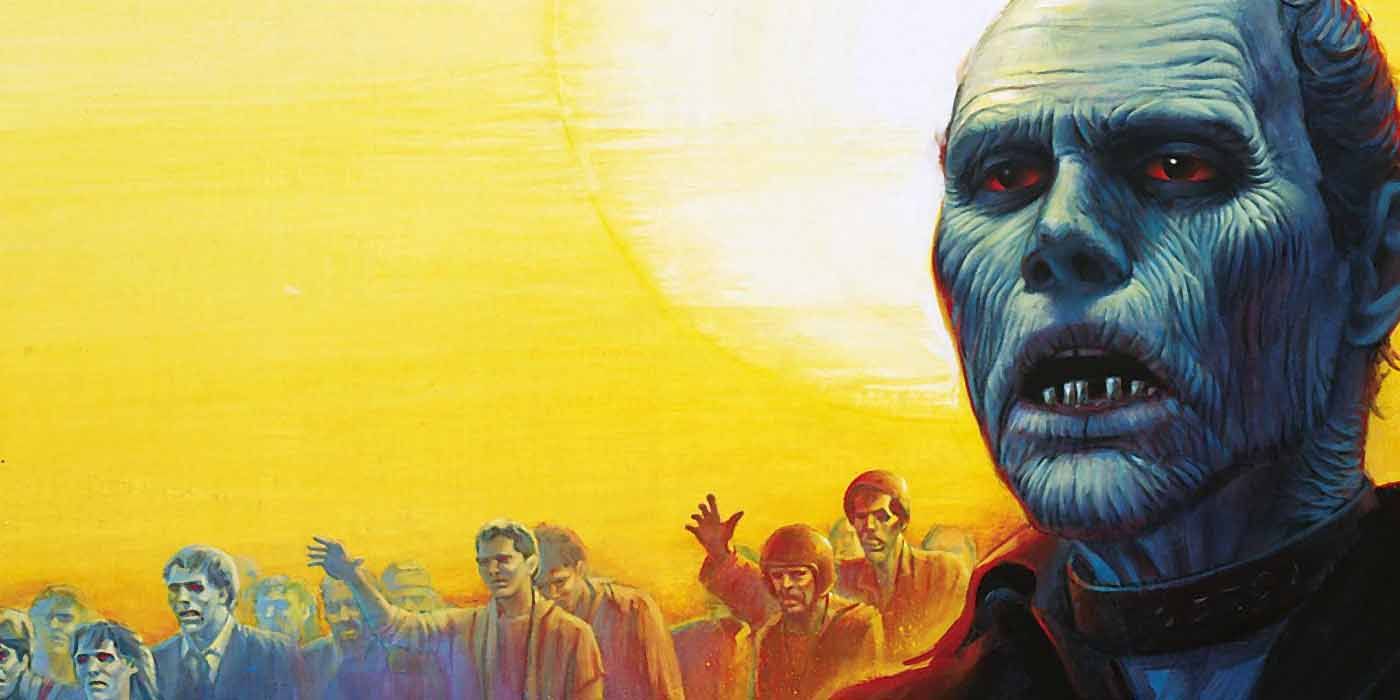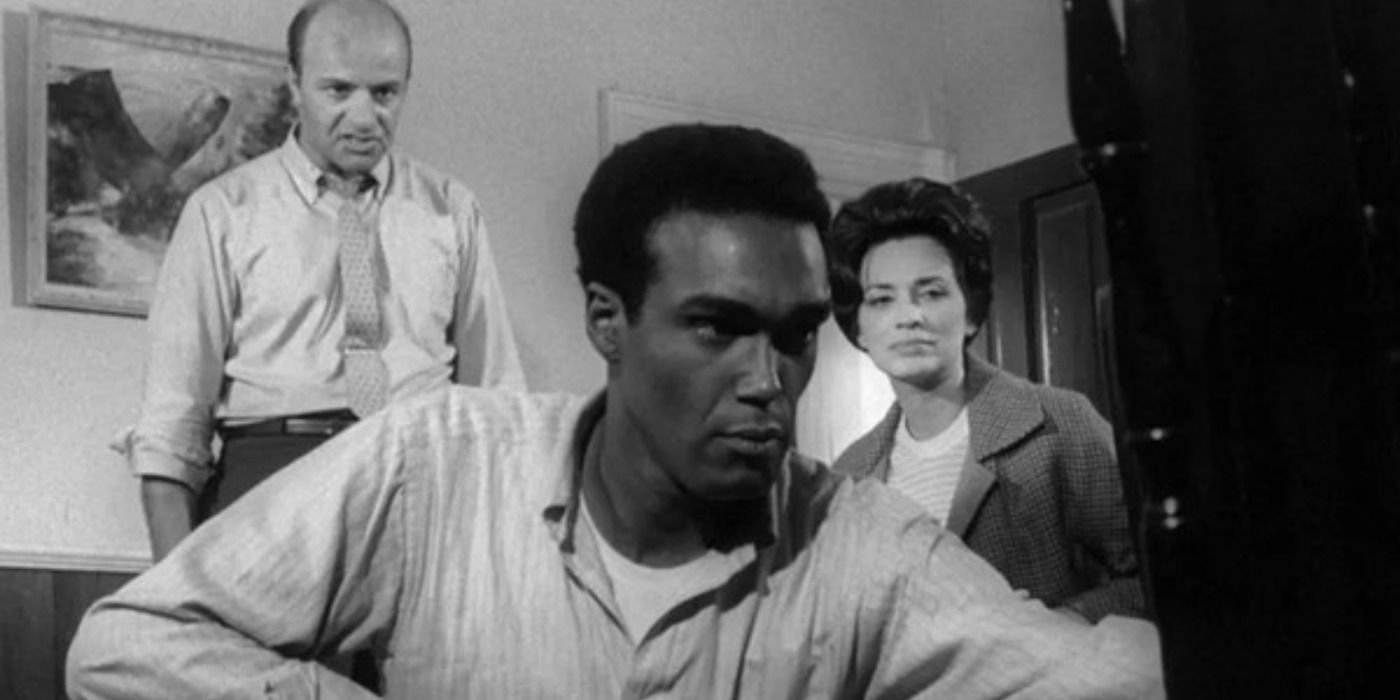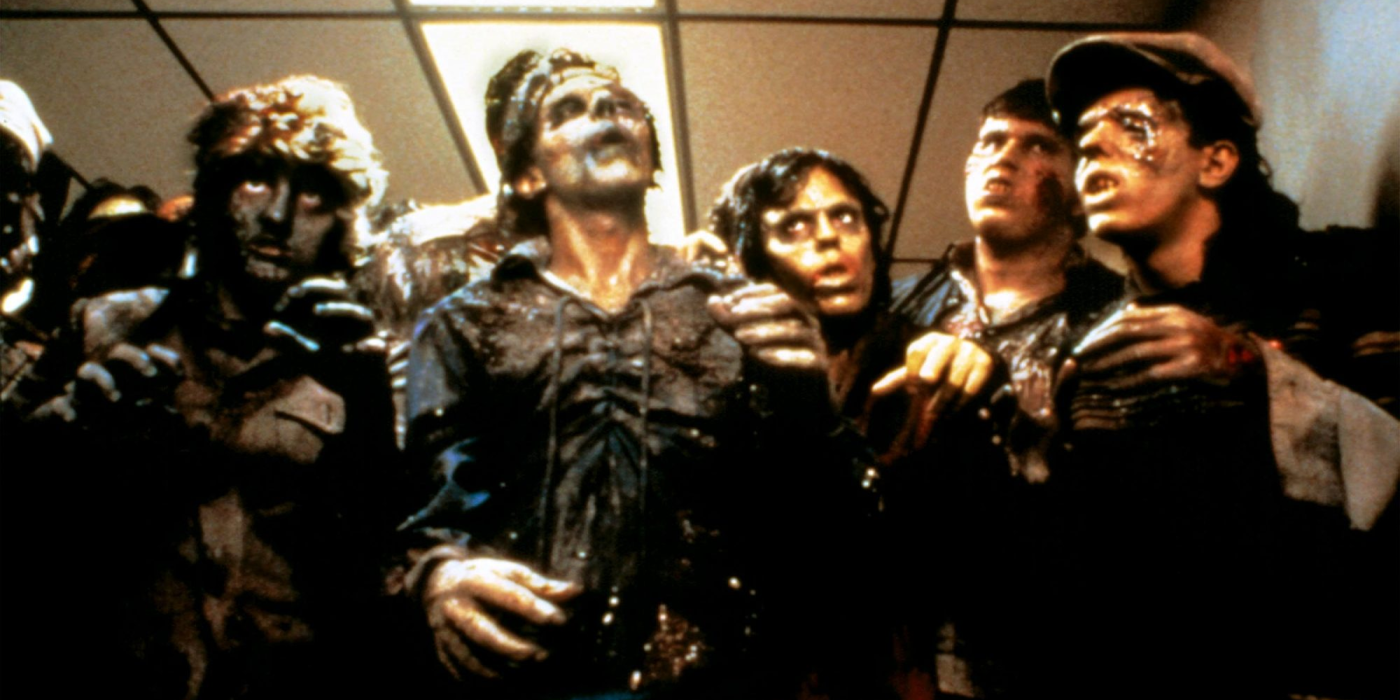One of the beautiful things about the horror genre is its ability to take outrageous ideas like zombies and utilize its content to convey a larger message. George A. Romero's Dead trilogy began in 1968 and used that method to have viewers face the larger and more terrifying ideas of the real world. The poignant core of his three films discussed ideas that are just as relevant now as they were over 50 years ago.
Night of the Living Dead was Romero's first major motion picture, and he made sure to make it count. While the film is most recognized for kickstarting the zombie phenomenon and the iconic line "They're coming to get you, Barbara," another cultural milestone was achieved with actor Duane Jones in the role of Ben. In the late '60s, tensions were high on the topic of race, and the decision to cast a Black actor in a lead role was nearly unheard at that time.
Jones' inclusion helped usher in the idea that the real enemies in the film weren't the zombies, but the people seeking refuge. For its duration, Ben becomes the de facto leader of the survivors, much to the chagrin of the older and more close-minded Harry Cooper. Ben tries his best to keep the survivors together, but one by one their fear and doubt in Ben's leadership led to their demise. Even Ben's death, in the end, is tragic as he looks through a window and is shot by the local Sheriff and other survivors for being mistaken for a zombie in the distance. Unfortunately, Night of the Living Dead's commentary on racism is still relevant today, with Ben's death at the hands of police a chilling parallel of the Black Lives Matter movement.
1978's Dawn of the Dead takes another close look at an issue that still plagues the world -- materialism. The film opens with the beginning of the zombie uprising and the survivors who take refuge in a mall. At first, the mall seems like a paradise. But as days become weeks, the large building begins to resemble a prison as more zombies bang at the door because shopping is the one thing from their lives they remember. Dawn of the Dead revealed the dangers of constant spending and its effects on people. Even today, as people buy into the latest trends, they lose a piece of themselves until, much like the creatures on the outside of the mall, they become zombies themselves.
When Day of the Dead released it dared to question the necessity of massive military power in lieu of scientific research. In the context of the film, this meant that a group of scientists and a team of soldiers are tasked with researching the zombie virus in an underground bunker until help arrived. However, the help that was meant to arrive may never come and the military the soldiers represent may not exist anymore.
As tensions rise, the soldiers begin to question the validity of studying zombies, like the intelligent Bub, and resolve to kill all zombies and any humans who get in their way. Day of the Dead brings to light the idea that while drawn-out studies on things like climate change may seem fruitless, its long-term effects could make a larger impact than military might. George A. Romero's Dead trilogy offers zombie antics in spades. However, what has made these films so iconic in the horror genre is the messages that they carry. Now, with the country and the world in another state of social and economic flux, the messages in Romero's films ring truer than ever.



